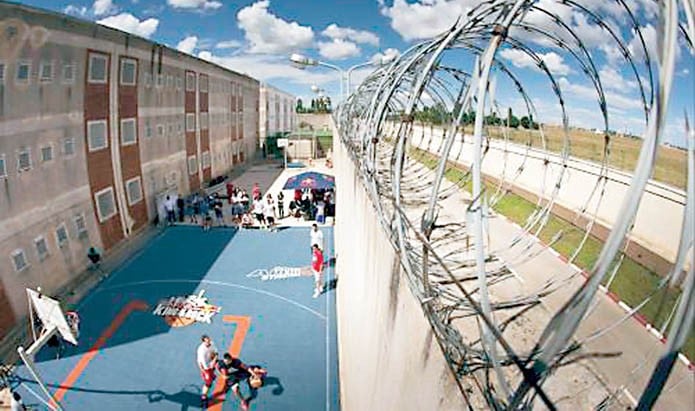
Sport can be a means through which to engage with the most challenging and complex individuals caught up in the world of crime

Keeping in view the pathetic situation of jails in Pakistan, a national committee on jail reforms was formed by Federal Ombudsman Salman Faruqui which was also sent to Chief Justice of Pakistan.
The committee visited jails in the far-flung areas of Pakistan and observed overcrowding, lack of sanitation & health facilities, shortage of staff, violence against prisoners, particularly women and children, sexual exploitation of juvenile prisoners and lack of professional leadership and administration.
Imprisonment in Pakistan under any offence is looked from the perspective of torture, inhuman and degrading treatment or punishment.
Under the Prisons Act of 1894 and Pakistan Prison Rules of 1978 & a few other Ordinances and Acts each provincial government has the responsibility for the accommodation of prisoners and the management of central, district and special prisons within its territory.
Unlike Pakistan where jail is compared with a hell and wardens are no less then devils, a prison abroad is viewed as a "disciplinary comprehensive apparatus" responsible to reform the delinquents.
It is this destructive and negative approach in our prisons that prison inmates suffer from extreme depression and other health issues.
According to a recent research carried out at a Nigerian prison of Osun State by Obafemi Awolowo University (Nigeria), there is a positive relationship between sport participation and mental & physical health benefits. The research evidence illustrates that a well-programmed physical activity and sports positively affect psychological and mental health conditions such as anxiety, depression and other psychological dysfunctions.
The researchers used organised football for two to three hours per week. It caused significant cardiovascular, metabolic and musculoskeletal adaptations irrespective of gender or age. Individuals who played football were observed to develop high levels of social interaction during the period of active participation, which shows that despite problems in the jail the convicts felt motivated, happy and involved to the point where they forgot time and fatigue.
Rosie Meek in his book "Sport in Prison" writes that sport can be a means through which to engage with the most challenging and complex individuals caught up in the world of crime.
It is interesting to note that to date 47 footballers, 34 motorsport drivers, 29 basketball players, 26 boxers and 21 baseball players besides tennis players, swimmers, wrestlers, cyclists, rugby players, surfers, athletes, figure skaters and cricketers have been convicted and sent to jail in cases of fraud, murder, embezzlement, rape, drugs, gambling, corrupt payments, tax frauds and man slaughter.
The cricketers include Muhammad Amir, Muhammad Asif, Salman Butt, Mervyn Wesfield, Chris Lewis, Grath Le Roux, Lorrie Wilmot, Warrington Phillip, Vallance Jupp, Terry Jenner, Lesile Hylton and Arthur Coningham who have been sentenced to jail under different crimes.
Most of the sportspersons after completing their sentence in foreign jails came out as better human beings because they got a chance to realise their shortcomings and improve their behaviors.
I am quite sure that had Amir and company been in any Pakistani jail for the same period that they spent in UK they would have turned them into hard core criminals with a destructive mindset.
The focus of prison reforms should be on making people able to go back to the system with a positive mindset and improved physical and mental health. Sports thus play a vital role in rehabilitative programmes. By undertaking organised sports the inmates start considering prison as a social organisation that develops the prison community’s social capital.
Prisons are little communities presenting a heterogenic population constrained to face diverse social problems. Thus concrete and effective solutions are required to solve them. Lack of funding that most of prisons experience exacerbates this critical situation and makes an efficient intervention more complicated.
I am quite optimistic that in the absence of scientifically functional sports academies in the country, the jails can be turned into effective sports academies where Physical Education keeps a lid on the prison and give prisoners a channel to vent out their aggression and a network of gyms in all prisons has the capacity to handle large number of testosterone-charged men who would otherwise cause grave disciplinary problem.
Organised sports in jails have shown wonderful results and one expects that Federal Ombudsman and the Chief Justice of Pakistan would take a note of such positive intervention and introduce organised sports activities that can be easily practised in confined environments.